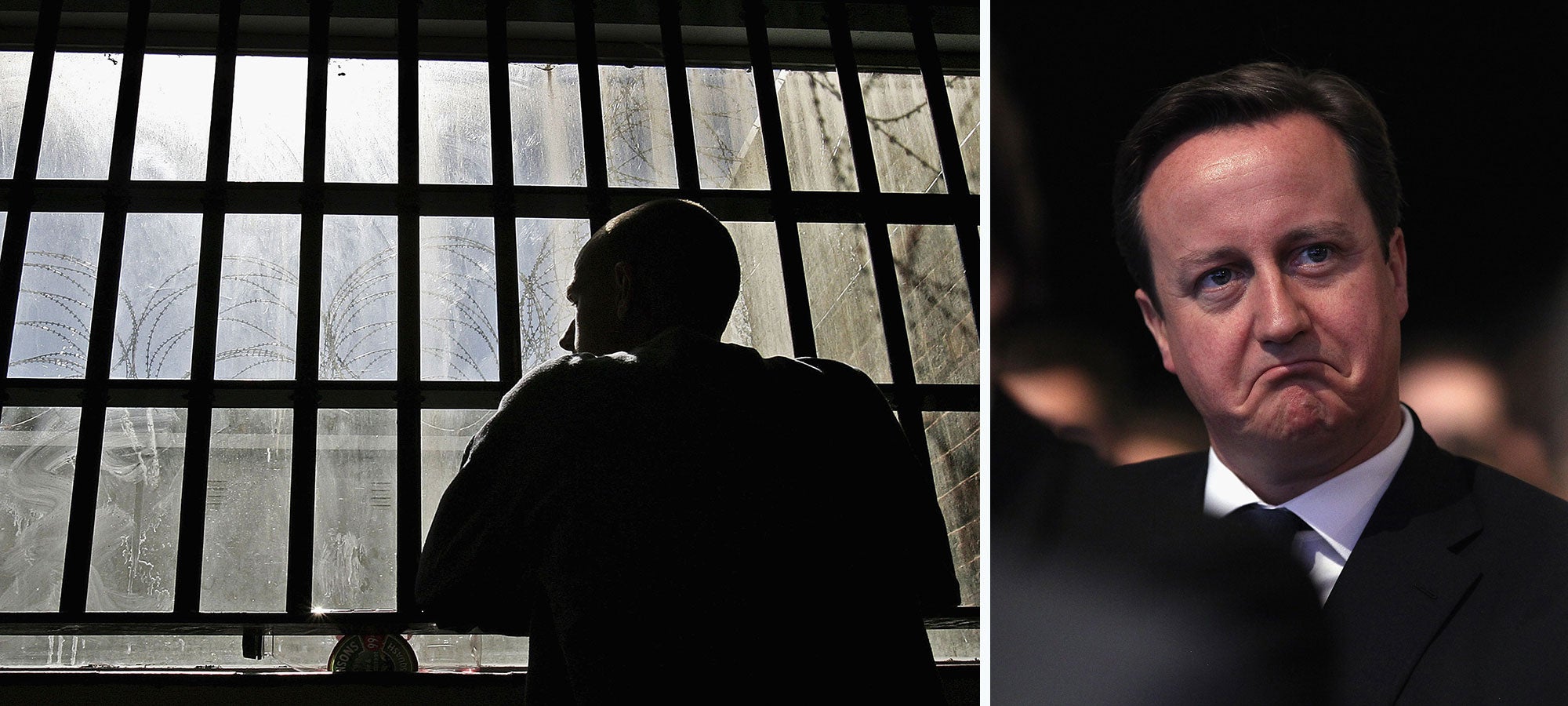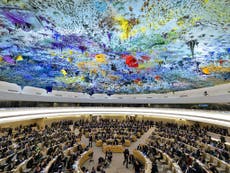The government says we shouldn't "shout the loudest" on human rights. I wonder why that is
Remember the British pensioner imprisoned in Saudi Arabia? His son implied that the family had felt moved to force the FCO’s hand over the case, because trusting in 'quiet diplomacy' had achieved absolutely nothing except a year in prison

In an article published on Human Rights Day, Foreign Secretary Phillip Hammond has said that “promoting human rights is not about who can shout the loudest”.
The UK government have made it clear that they don’t like what they call ‘megaphone diplomacy’, ‘pulpit preaching’ and lecturing – better have a quiet word in the ear of human rights abusers rather than make a public statement. I wonder which countries Mr Hammond has in mind when pursuing the silent approach? Bahrain, China, Egypt, Saudi Arabia?
Mr Hammonds approach may appear reasoned, even pragmatic, but in my experience, ‘silent diplomacy’ can easily be interpreted as a couple of junior mandarins having a backroom conversation.
It’s to Saudi Arabia that Mr Hammond turns when explaining how the strength and breadth of the bilateral relationship he has with the regime was used secure the release of British pensioner Karl Andree. A victory then for quiet, patient diplomacy?
Well, prior to this intervention, Mr Andree’s family had certainly been quiet and patient. Mr Andree had served more than a year in prison. Yet it was only after Mr Andree’s family went very public indeed, with an exposé in The Sun the UK’s most widely read newspaper, that his release was expedited. Mr Andree’s son implied that the family had felt moved to force the FCO’s hand over the case, because trusting to quiet diplomacy had achieved absolutely nothing. Hardly a ringing endorsement of the trust-us-behind-closed-doors method of making representations.
Mr Hammond would have us believe that publicly making statements can be counterproductive, but it’s precisely such statements and stances that some of the strongest and most effective messages come, and from those proclamations some of the greatest change. One particular example comes courtesy of Mr Hammond’s boss, David Cameron.
Two years ago, In November 2013, the British Prime Minister went to Sri Lanka for the Commonwealth Heads of Government Meeting and felt moved to very publicly raise the appalling human rights abuses committed against the country’s Tamil population at the end of the bloody civil war.
He was strident about the ongoing failure to investigate and account for the horrors. To the obvious displeasure of his host, Mr Cameron pulled no punches in insisting that an adequate mechanism for investigation be set up. After a stalemate which had lasted for years, his public rebuke was in no small part a key step on the road to long-sought accountability. Sri Lanka is currently being urged to cooperate with a UN investigation and Mr Cameron’s admonishment in the country, is hailed as having contributed to that progress.
At the time it seemed like his principled and public stance might herald a new dawn for British boldness over human rights concerns, but it proved to be a false one, as we were informed by a senior Foreign Office official that human rights have been deprioritised in favour of economic diplomacy.
So when the UK government welcomed Chinese Premiere Xi Jinping to London a few weeks ago, he paraded up the mall in a gold encrusted carriage, dined on turbot and partridge and slept at Chequers. Concern about China’s appalling human rights record was only mentioned when a journalist had the audacity to question him during a press conference. Interestingly the President didn’t cancel trade deals, cut off diplomatic ties and withdraw his Ambassador – he acknowledged there was room for improvement (OK a bit of an understatement) and that China would be willing to work with the UK on this. Megaphone diplomacy at work?
It is somewhat worrying that Mr Hammond appears to suggest that those of us who put pressure on the UK and other governments to raise human rights with their foreign counterparts - and to do so in the public eye - are in some way missing the nuance of the affair. I can assure Mr Hammond that this isn’t the case. We at Amnesty International engage in ‘silent diplomacy’, but when this fails to have an impact we aim to expose, shame and put human rights in the spotlight – loudly. And governments should do the same.
I am sure he would even rather that our retort to his remarks were likewise delivered in a private forum – but, like the entire premise of this ‘trust us’ defence and unlike the Saudi and Chinese delegations our senior politicians are so keen to sell weapons and power stations to - I’m not buying it.
Allan Hogarth is Head of Policy at Amnesty UK



Join our commenting forum
Join thought-provoking conversations, follow other Independent readers and see their replies